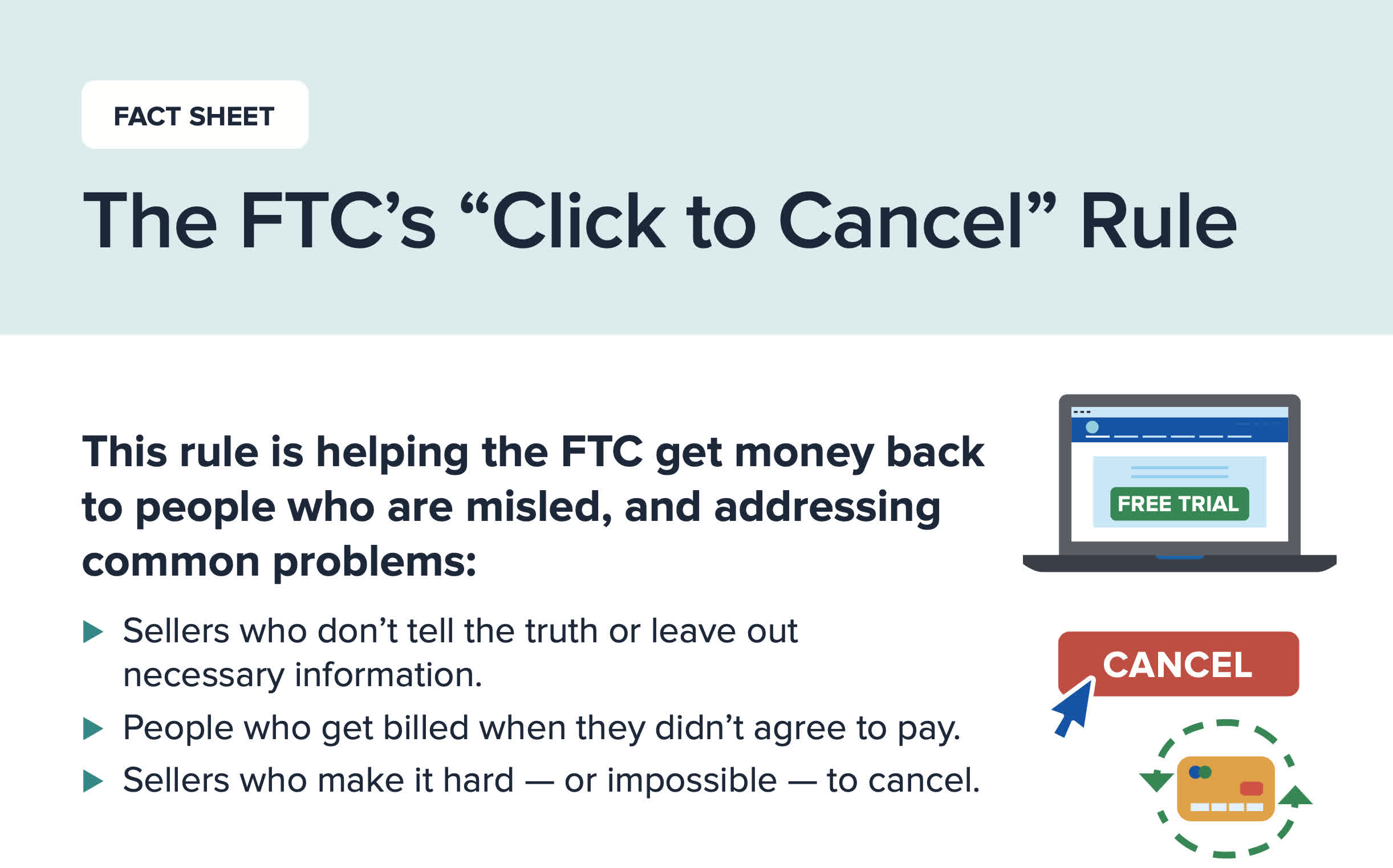In a nutshell: California recently passed a law requiring companies with auto-renewing subscriptions to make it as easy to unsubscribe from the service as it is to initiate it. The legislation forbids service providers from offering easy one-click signups while making cancellation as frustrating as possible. Although the law doesn't extend beyond California's borders, similar regulations at the federal level are coming.
On Wednesday, the Federal Trade Commission agreed to ratify its "Click-to-Cancel" rule in a 3-2 vote. Click to Cancel (C2C) is almost identical to California's law. At its core, it mandates that consumers have an option to cancel, which is just as straightforward as subscribing. It also prohibits companies from lying by omission and billing people when they did not explicitly agree to pay.
"Too often, businesses make people jump through endless hoops just to cancel a subscription," said Commission Chair Lina M. Khan. "The FTC's rule will end these tricks and traps, saving Americans time and money."
The regulation comes after an ongoing review of the FTC's Negative Options Rule of 1973. Negative options are when a business requires the customer to take action to avoid being charged. An example would be a free trial that bills your credit card at the end of the trial period unless you cancel, which is the exact model that most companies have been using for decades.
The FTC approved C2C for public comment in March 2023 and received over 16,000 responses from consumers, trade associations, watchdogs, and local and national government agencies. Unsurprisingly, businesses employing complicated cancellation techniques are against the rule.

While the trade groups frame their arguments as pro-consumer, they are blatantly self-serving. Opponents contend that making cancellation as easy as one click will increase the rate of "accidental cancellation." They also say consumers are "used to" the protracted cancellation processes and rarely complain.
"If sellers are required to enable cancellation through a single click or action by the consumer, accidental cancellations will become much more common, as consumers will not reasonably expect to remove their recurring goods or services with just one click," commented one advertising group.
"The use of automatic renewals for newspaper and magazine subscriptions does not result in pervasive complaints and dissatisfied consumers," said the News/Media Alliance, a publisher trade group. "[We receive] very few complaints [regarding cancellation]."
These arguments fail to mention that companies have conditioned most customers to accept jumping through their hoops because complaining about it does nothing. Furthermore, subscriptions in the digital age have become increasingly easier while cancellation processes are still living in the 1980s.
The FTC says that as subscription processes have grown more convenient, so has the number of complaints about negative options it receives. In 2021, the FTC fielded an average of 42 daily consumer complaints regarding subscription cancellation. That average is up to 70 per day in 2024, with a few months remaining.
The C2C rule goes into effect 180 days after the FTC enters it in the Federal Register. Presuming registration is relatively swift, we could see changes to cancellation policies in six months or so.
